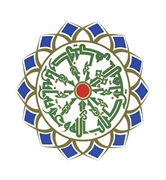- Moral Governance of Prophet Muhammad, Part IV
- Written by Nasr Isfahani, Mohammad
Prophet Muhammad was sent to establish a community based on moral principles, and in doing so, he set out to perfect people’s ethics. During his leadership, he established a comprehensive system of laws in which the duties of each person was taken into consideration to form an independent and unified nation. He encouraged public participation and eradicated structures of idol worship in Mecca by replacing them with places of worship for Muslims. In part II, Prophet Muhammad’s ethical management of the economy in the Islamic state was described. Part III studied his peace-making strategies, management of war, and dealing with opposition within and outside Medina, such as his judicial and political approaches, his emphasis on the use of consultation, and leniency and kindness towards war captives. This last part focuses on the Prophet’s own ethical conduct as the perfect exemplar, and his efforts to eradicate differences based on tribe, gender, race, and social class to create a system grounded on principles in which all believers have equal rights.
Download the full paper
Next Post
Previous Post

Message of Thaqlayan
Most Read Papers
- Index of Previous Titles, Spring 2009 - Winter 2004
- About
- Authors
- Titles
- Subject
- Editor-in-Chief
- The Connection between Imam Mahdi and Imam Husayn, Part III
- Allamah Hilli on Imamate in Kashf al-Murad, Part II
- The Qur'an in the Words of Imam Sajjad
- Healthy Personality in the Youth: An Islamic Perspective
Recent Issues
- Volume 18, Number 3 (2017)
- Volume 18, Number 3 (2017) table of content
- Volume 18, Number 2 (2017) table of content
- Volume 18, Number 2 (2017)
- Volume 18, Number 1 (2017)
- Volume 18, Number 1 (2017) table
- Volume 17, Number 4 (2017) table
Copyright © 2022. All rights reserved by Zain Abbas Shahid
Shopping Basket

Message of Thaqlayn
Menu

